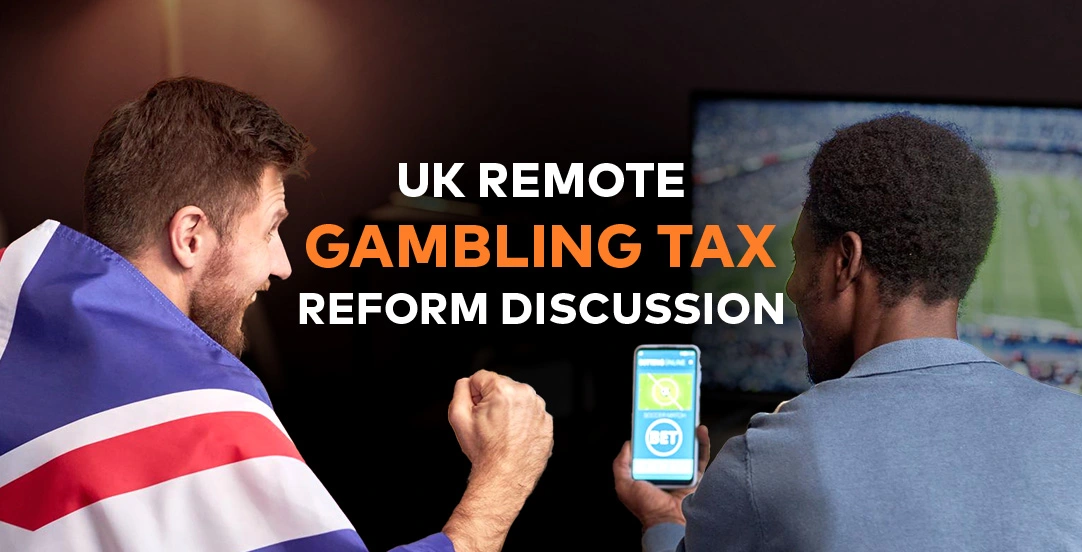UK remote gambling tax reform

The UK remote gambling tax reform discussion is capturing the attention of the iGaming sector in unprecedented ways, as the government signals a possible shift to a single tax rate for remote gambling. This proposal, currently undergoing industry consultation, seeks not just a streamlined fiscal policy but a foundation for what the next phase of regulated online gambling could look like—potentially influencing everything from operator viability to player safety.
Understanding the context behind the tax reform proposal
For years, UK remote gambling taxation has followed a three-pronged structure: Remote Gaming Duty (RGD) at 21% of operator profit, General Betting Duty (GBD) at 15%, and Pool Betting Duty (PBD) also at 15% of net stake receipts. This arrangement reflects legacy distinctions in activity types and their modes of consumption. However, rapid innovation and a shift in consumer behaviors have called into question whether these categories still make sense. According to the treasury’s exchequer secretary, James Murray, “the tax system needs to keep pace with the developments and innovation that have seen the UK-facing remote gambling sector change significantly in recent years.”
The government’s suggestion is to consolidate these into a single Remote Betting and Gaming Duty (RBGD). The consultation process, open until July 21, 2025, seeks input from all corners of the industry on how to best achieve a system that meets fiscal, operational, and player protection goals while also considering which gambling activities should be included and how promotional tools like free bets are treated.
The regulatory rationale and industry reactions
On one hand, the government’s reasoning for this reform is rooted in simplicity and future-proofing. With the sector’s gross gambling yield for remote gambling reaching £6.9 billion annually—a growth of over 200% in the past decade—the alignment of tax rates is framed as a necessary adaptation. The current structure, in their assessment, has lost its rationale and risks falling out of step with technological and market realities.
On the other hand, skepticism reigns among industry stakeholders. The Betting and Gaming Council (BGC), representing many of the UK’s leading operators, has responded forcefully. CEO Grainne Hurst warns that lifting the betting duty to match remote gaming duty would be “catastrophic” not only for the regulated sector but also for industries intertwined with betting, such as UK horse racing. The concern here is that what may be painted as simplification could in reality lead to a sharp rise in effective tax burdens.
Financial and social ramifications of the proposed changes
Should the GBD rise from 15% to 21% in the pursuit of tax harmonization, there will be multiple repercussions:
- Operators reliant on sports betting platforms—which currently benefit from a lower rate—could see profit margins eroded overnight,
- Horse racing, benefiting heavily from betting revenues, may suffer unintended financial harm,
- There are fears that increased consumer costs (from operators passing on their expenses) could push more bettors to the unregulated black market.
Indeed, the threat of the black market looms large in stakeholder feedback. Steve Donoughue, a consultant with decades in the industry, argues that higher taxes and mounting restrictions could be the catalyst for players to migrate to offshore, less regulated platforms. This is not a theoretical risk; charities such as Deal Me Out and Gamstop have documented an increase in players seeking alternatives that avoid the friction of UK regulation.
Player protection and wider implications
The debate goes beyond fiscal policy to questions of public health and social impact. Gamstop’s 2025 report revealed that 1% of UK adults—560,000 individuals—have now used its self-exclusion platform. Notably, 75% of registrants reported abstaining from online gambling altogether after enrolling. These numbers exceed all prior projections and highlight both the demand for robust harm prevention and the risks posed by channels operating outside the UK’s regulatory net.
This tension lies at the heart of the tax reform discussion. Advocates, including the BGC, consistently stress that heavier tax or regulatory burdens on legal markets can have the perverse effect of undermining consumer protection frameworks, as players are nudged toward riskier alternatives.
How the proposed changes align with government objectives
The government’s consultation frames RBGD as a step toward a more transparent, administratively efficient, and future-oriented system. The aim is to reduce friction both for HMRC and for industry players, closing loopholes and adapting the tax net to evolving digital channels. The scope of activities covered, the rate itself, and the handling of incentives are all live questions open to industry input.
Yet, the process is at an early stage. The government has not yet indicated a specific rate for the new RBGD, and several influential voices—such as Entain CEO Stella David—predict any legislative changes are unlikely before 2027 or 2028, with considerable scope for industry collaboration and lobbying in the meantime. This multi-year time frame gives all parties a rare opportunity for meaningful engagement and evidence-based policy construction.
Key uncertainties and the road ahead
Several uncertainties dominate analysis and industry planning:
- What will the final RBGD rate be set at, and how will it compare to the current blended effective tax rates?
- Will pool betting (with its unique net receipt calculation) be rolled in seamlessly, or require special provision?
- How will promotional tools like free-play bonuses or free bets be treated for tax purposes?
- Can the reform balance fiscal goals with the imperative to keep regulated gambling attractive to players to avoid black market leakage?
It is also critical to scrutinize the statistical underpinnings of the consultation. Dan Waugh of Regulus Partners points out that the government’s growth calculations for remote gambling may overstate expansion due to methodological errors, especially concerning the point of supply versus point of consumption tax bases. This discrepancy could affect the justification and design of any new tax structure.
Broader cultural and technological resonance
Ultimately, the reform debate fits into a wider narrative about digital governance, responsible innovation, and the future of online leisure. The UK has long been a global bellwether for regulated iGaming; its approach to taxation and harm prevention is scrutinized and emulated worldwide. The questions at stake—how to fund public coffers, incentivize compliance, and protect vulnerable users—are not unique to this market, but how the UK resolves them could set precedents with international impact.




















